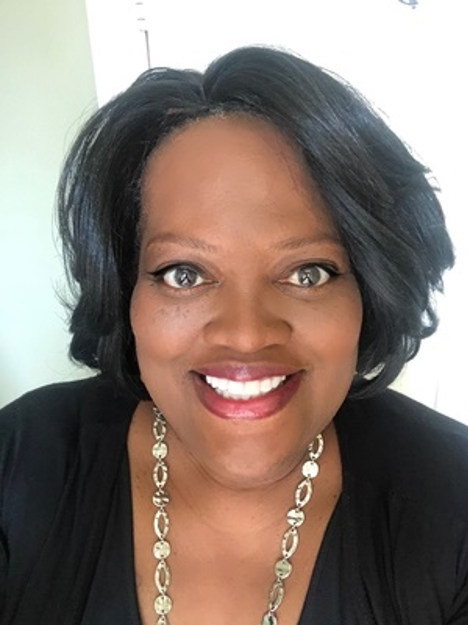 This perspective is provided by Kimberly Richardson a research advocate working with cancer survivors in the University of Illinois Cancer Center.
This perspective is provided by Kimberly Richardson a research advocate working with cancer survivors in the University of Illinois Cancer Center.
I am an African American, ovarian cancer survivor who lives in Chicago, Illinois.
My daughter, a senior in high school, is an essential worker for a national grocery store chain. Since the statewide announcement of school closings, she was offered full time hours to work as many days during the week that she wants. Gradually, the national chain has been implementing strategies like social distancing inside the store but have not made any store policy on employees wearing masks. Basically, you can wear them if you purchased your own.
Based on the 5:00 pm city curfew, the police have the right to stop and detain you for being outside past 5:00pm. Before the curfew was put in place, her twin brother would walk to the bus stop to pick up his sister and escort her home. All essential workers were given a letter from their employers to show the police if they are detained. As a mother, I began to imagine my son walking along, being stopped and when reaching for the essential worker’s letter, an overzealous officer mistakes the gesture for reaching for a gun.
Now, I pick up my daughter by car from work every night. Every night I risk infection alongside her, before she can get home, isolate her work clothes and take a shower. My daughter shows no signs of the virus but as many other essential workers, they are completely unaware if they are carriers or simply asymptomatic. As a seven year cancer survivor, I worry every single day if my immune system is strong enough or if having been treated for cancer will subject me to infection.
Now the data is emerging in Chicago on the increased number of COVID19 deaths in the African American community. I scrolled through my social media newsfeeds and I’m taking note of the mood of my Facebook friends. Initially, the mood ranged from indifference to posting humorous memes that took jabs at the word coronavirus and hoarding toilet paper. Slowly as our elected officials began talking of school closures, people were complaining about childcare costs, but still no measurable conversations about keeping safe or understanding the virus itself.
As the “wash your hands-stay at home order” emerged, I could still see some ambivalence in people’s postings until the first African American woman in Illinois died for coronavirus. That’s when the mood shifted.
The school closure was extended, and so was the stay at home order. More and more, people began pointing the finger at taking pictures of people not practicing social distancing or not wearing a mask in public. Conspiracy theories began to emerge as even our president called it the “Chinese” virus. Nevertheless, most people dealt with the anxiety of the spread of the virus by posting lighthearted memes of our mayor in various places saying, “stay at home!’. Thankfully, she found the humor in those memes, but her leadership on the stay at home order has been challenged by a few, regardless of race. Two days ago, when she announced that African Americans have the highest death rates in the state from COVID-19, more African Americans began searching for someone or something to blame.
I personally have been challenged by long time Facebook friends on my position on the subject. I’m seeing a trend of posts where we are shifting the blame for these deaths unto ourselves. More posts of pictures of African American people standing around at night, not practicing social distancing are used as the evidence as to why their loved ones are infected and or dying. Rarely is anyone engaging in conversations beyond containment, but everyone views the lack of adherence to this social health policy as the direct cause of the increase in deaths from COVID-19 in the African American community.
As a patient advocate with deep concern for health disparities in cancer care, I respond back mentioning pre-existing conditions that make us susceptible to this virus and that neighborhood hospitals are not equipped with life-saving equipment or adequate professional staff to handle this pandemic. It makes sense to some and to others it doesn’t. I’ll just have to keep posting – WE ARE NOT THE PROBLEM! Racial inequity in our health care system is the problem.
I’m extremely worried as I see so many pharmaceutical companies shifting priorities from discoveries for cancer treatments to developing trials for COVID-19, that old rules will continue to apply: people with pre- existing conditions will not be eligible.
I wonder as new information emerges, particularly on the alarming rates in the increase of African Americans dying from COVID-19, if scientists are revising their current protocols and enrollment processes to include African Americans as major participants in their studies? Will scientists seek to find African Americans who have recovered from the virus to examine their antibodies in an effort to discover pathways toward immunity? Are healthcare professionals tracking the tests for infection and will scientists create these important serological tests specific to the African American community? Equally important is the role AI will play in the mining of this data and how it can potentially harm our community in medical and economic ways.
Lastly, how will the scientific and medical communities communicate with African Americans about the advances they are making toward the treatment of COVID-19? Will it be a top down approach that will ultimately unleash a whirlwind of mistrust similar to the Tuskegee experiment? I think about all of these things while I apprehensively wait in the parking lot for my daughter to clock out each evening.